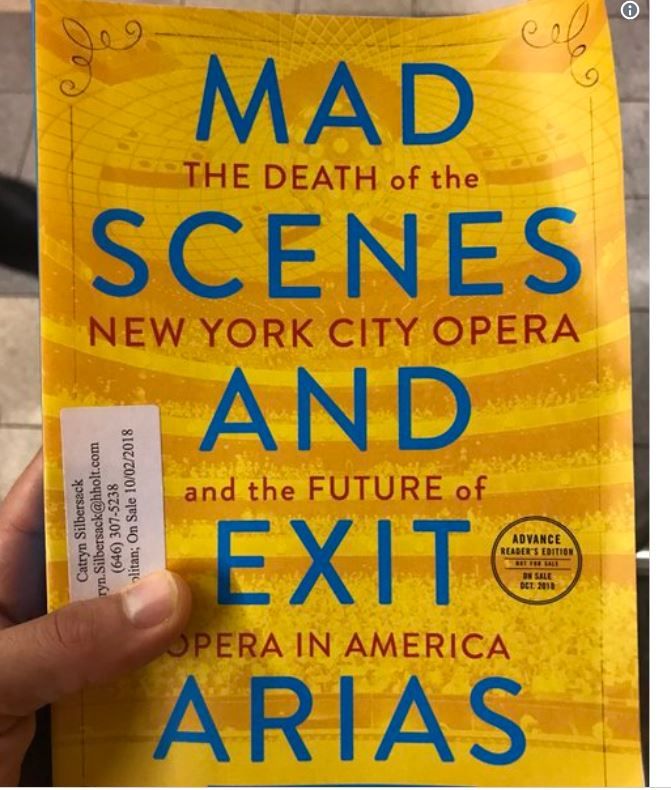
Music lovers! I’m writing mere hours from the blockbuster pianist Lang Lang’s return to the concert stage after a year and a half recuperating from an arm injury. At Tanglewood with the Boston Symphony Orchestra — currently facing an intriguing gender pay discrimination suit brought by its principal flutist — Mr. Lang will venture back gingerly, with Mozart rather than something more key-pounding. As you can see, he’s been diligently exercising.
I, too, am back: from a whirlwind trip to Europe. In Amsterdam, I saw George Benjamin and Martin Crimp’s new “Lessons in Love and Violence,” about Edward II of England and the impact of his gay affair on his family and nation. It struck me as an elegant but way too cramped treatment of a subject that wanted more breathing room. (My colleague Anthony Tommasini liked it quite a lot in London in May.)
In Munich, I reviewed a star-filled but dreary “Parsifal.” (The conductor Kirill Petrenko, though, was on fire in his first go at the opera.) I loved David Allen’s profile of Stefan Herheim, a director who always makes me think, but I found Mr. Herheim’s Glyndebourne Festival production of “Pelléas et Mélisande” — set, in classic Herheim style, at the Glyndebourne Festival — uncharacteristically wan.
Coming up next week for me is a trip to Santa Fe to revisit John Adams and Peter Sellars’s “Doctor Atomic.” Be sure to read Michael Cooper’s story on the tweaks Mr. Sellars is making to the opera as it arrives at the birthplace of the bomb. Check out a new recording of the opera, with Mr. Adams conducting; I’m feeling the tension of the score more than ever.
I hope you got your fill of “The Stars and Stripes Forever” this holiday. On Monday we published a wonderful piece by Sheryl Kaskowitz about the 100th anniversary of “God Bless America”; Irving Berlin’s story of immigrating to the United States strikes a special chord this year. And we included Kate Smith’s first go at what became her trademark number.
I ate up my galley copy of Wall Street Journal critic Heidi Waleson’s forthcoming book about New York City Opera and did a little tweetstorm about it.
We won’t be at the always stimulating Aix-en-Provence Festival this year, but I was pleased to interview Bernard Foccroulle, who is stepping down after an 11-year tenure as director, about his favorite productions there.
Happy reading! Happy listening! ZACHARY WOOLFE
Philip Glass has long been celebrated for his scores for new films. But he also writes music for old ones. His 1998 string quartet accompanying “Dracula” (1931), commissioned by the Kronos Quartet, is a stylish work of deathless gloom. (The DVD release makes an ideal pair with the Criterion Collection’s Blu-ray edition of Jean Cocteau’s “Beauty and the Beast,” which comes with Mr. Glass’s operatic adaptation as an optional soundtrack.)
On Tuesday, Michael Riesman — the longtime musical director of the Philip Glass Ensemble and an inveterate arranger of Mr. Glass’s works for solo piano — gave an authoritative performance of the “Dracula” score at Le Poisson Rouge, underneath two screens showing the film. So booming was his reading that English-language subtitles proved necessary for the audience to keep track of all the dialogue. But this occasional covering of the film’s original sound was worth it. During “Carriage Without a Driver,” Mr. Riesman emphasized a nervy percussive quality that isn’t as prominent in Kronos’s recorded version. SETH COLTER WALLS
With ongoing debate about the merits of Leonard Bernstein’s “Mass,” one notable aspect of the piece is often taken for granted: the lead role of the Celebrant is a demanding assignment, both vocally and dramatically. The fast-rising, Panamanian-American baritone Nmon Ford takes on the role in the Mostly Mozart festival’s production on July 17 and 18. In recent seasons Mr. Ford has won praise for performances in American and European opera houses. That he had early promise comes through in this 2012 video of the stirring duet for tenor and baritone from Bizet’s “The Pearl Fishers,” performed with the tenor Noah Stewart in a Michigan Opera Theater production. Here are two charismatic young singers giving this beloved duet their all. ANTHONY TOMMASINI
Last summer, I wrote about Marc Blitzstein’s “The Cradle Will Rock” returning, at Opera Saratoga, in a year in which its themes of inequality, corruption and labor rights were again front-page news. Little seems to have changed — the Supreme Court made another ruling about labor unions just last week — and, as if ready with a response, “The Cradle” is back: A recording of Saratoga’s production is out today, on Bridge Records. And for anyone who thinks they know this show, it’s essential listening.
Virtually every production since the storied 1937 premiere, a scrappy act of protest against being shut down by the Federal Theater Project, has imitated that night by performing the score with only a piano. Revivals tend to come off more like cabaret-style revues than the full-fledged theater work Blitzstein and his director, Orson Welles, intended. This is the first commercial recording with Blitzstein’s original orchestration. (Unfortunately, the quality leaves much to be desired.)
Blitzstein wrote “To Bert Brecht” at the top of his finished score; that influence is much clearer in the restored instrumentation. Take this song, “Nickel Under Your Foot,” sung by the Moll, a prostitute. The opening verse recalls the strumming strings of Brecht and Weill’s street-singer style in works like “The Threepenny Opera” and “Alabama Song.” It’s not for nothing that Weill was said to have quipped about “The Cradle”: “Have you seen my latest musical?” JOSHUA BARONE
https://www.nytimes.com/2018/07/06/arts ... music.html